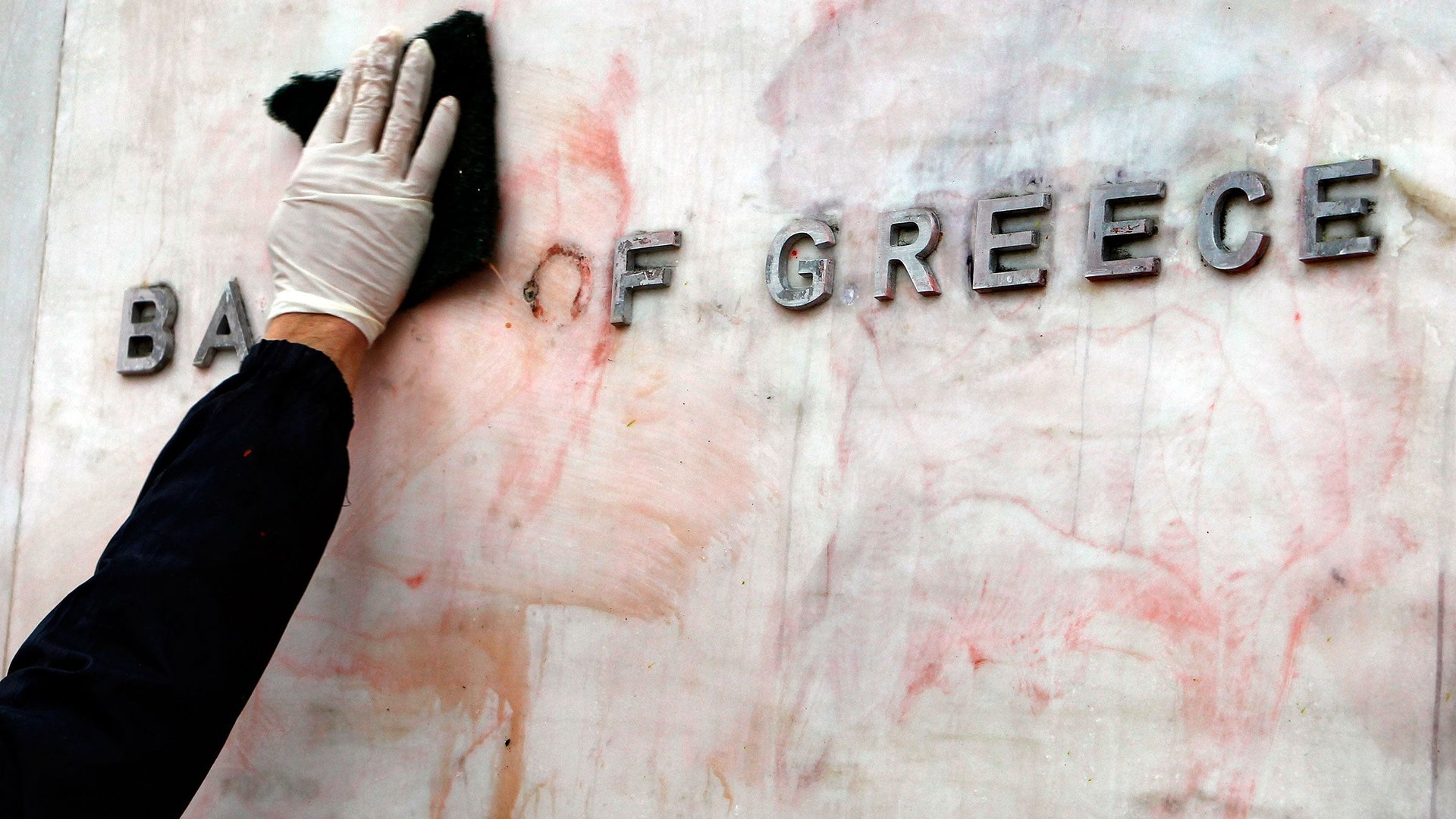The Turkish bank that escaped being sucked into the European black hole
Being associated with a failing euro-zone country is usually bad news for a company, no matter its own financial health. But Finansbank, Turkey’s fifth-largest bank, which is 95% owned by the National Bank of Greece (NBG), appears to be divorcing itself not only from its parent but from the euro crisis in general. Fitch Ratings has kept Finansbank at BBB- (the agency’s lowest investment-grade rating) since 2009, even though it has pummeled NBG down to a junky CCC. “It is unlikely Fitch would downgrade Finansbank as a result of any further deterioration in NBG’s financial position,” the agency said in a statement on Nov. 15.


Being associated with a failing euro-zone country is usually bad news for a company, no matter its own financial health. But Finansbank, Turkey’s fifth-largest bank, which is 95% owned by the National Bank of Greece (NBG), appears to be divorcing itself not only from its parent but from the euro crisis in general. Fitch Ratings has kept Finansbank at BBB- (the agency’s lowest investment-grade rating) since 2009, even though it has pummeled NBG down to a junky CCC. “It is unlikely Fitch would downgrade Finansbank as a result of any further deterioration in NBG’s financial position,” the agency said in a statement on Nov. 15.
This pretty much reverses a trend we’ve been seeing a lot lately; companies and their subsidiaries bolted to the failing ratings of their parent companies and countries. The situation has become so dire, in fact, that relatively healthy Greek companies like yogurt company FAGE and bottling company Coca-Cola Hellenic have moved their headquarters out of Greece to pre-empt the damage the country might do to their credit ratings. Most prominently, the subsidiaries of various Spanish companies in Latin America and Northern Europe have seen themselves downgraded along with or right behind their parent companies.
To a certain extent, this makes sense; if Greece went under, it would be hard to continue manufacturing and selling products there. Further, Greek parent companies might well pull funding from or sell off subsidiaries to build up a reserve of cash.
So why should the relationship between NBG and Finansbank be different? “Finansbank has no significant direct financial exposure to NBG, or to Greece more generally. Nor is the bank dependent on funding from its parent,” Fitch says. “In our view, the Turkish regulator, the Banking Regulation and Supervision Agency, would be very unlikely to authorise significant transfers of capital or liquidity from Finansbank to NBG and would seek to ensure that Finansbank is ring-fenced from any of its parent’s problems.”
Omer Aras, the Chairman and CEO of Finansbank, explains, “Finansbank doesn’t use any funding from the NBG and we don’t provide any funding, and we don’t have any Greek bonds, so the only connection is that the NBG is the shareholder.” The numbers are promising: NBG’s Turkish arm reported on Nov. 14 that its third quarter net profit rose 74%. Turkey’s GDP grew at 8.5% in 2011, and most analyst projections—while subject to global economic volatility—are still resoundingly positive. As for NBG, it was able to post profits in 2010 and 2011 because of Finansbank’s performance, relying on Finansbank to make its numbers look better as the Greek economy fell apart.
We’ve predicted that the sovereign debt crisis will probably entail a long, drawn-out economic deterioration for the euro zone. If this is the case, then could emerging-market firms move up the corporate and banking hierarchy? The case of Finansbank seems to suggest that—if the recession is deep enough in the euro area and emerging markets like Turkey find a way to grow through the turmoil—then yes, maybe they could.